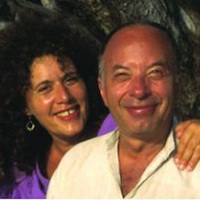Love is letting go of fear — Gerald Jamplosky
Love is in the air! Everywhere we see red hearts beaming from cards and boxes of chocolates. The color red is entrenched in our collective psyche as the symbol of love —a dozen roses do not have quite the same impact if they are yellow! But few of us realize how deeply our physical heart is entwined with our emotions.
When we fall in love our heart flutters, beats loudly, or leaps for joy; if we are rejected we are “heartbroken.” We are called “heartless” or “coldhearted” when we show no care, and “bighearted” when we extend our concern to others. When someone becomes our heart’s desire we have “heartfelt” feelings. We “take things to heart” when they are emotionally evocative, and we “talk heart to heart” about deeply personal issues. We love someone “from the bottom of our heart,” but are only “halfhearted” about something we are not emotionally touched by.
The heart is our emotional home where all our struggles, doubts and hurts are felt, as well as our longings, yearnings, joys and delights. This is seen in well-documented cases of heart transplants where the likes and dislikes of the heart donor are transplanted with the organ. One case was of Ellen who, after her transplant, developed a love for football and beer, things she had never gone near prior to the surgery. Turns out, of course, that the donor had been a football fanatic. In another case, a woman found that she had a great longing to swim and eventually she trained for the US Transplant Games and won a bunch of medals. And yes, you guessed it, prior to the operation she had never been an athlete but she had been given the heart of an avid swimmer.
The main emotional job of the heart is love and all its many manifestations, for love rarely flows smoothly. We may experience childhood conflicts, hurt or loss, and if the pain is too big to deal with we lock it away inside. This can lock us out of our heart so that the ability to express our loving feelings becomes limited. We may become mistrustful, uncaring, prejudiced and fearful, even closed to our own need for love. In England, where Deb grew up, many boys are raised to not show their feelings but to appear brave and strong: the saying goes that brave boys don’t cry. In adult life that can mean they may be unable to express gentleness, caring or loving qualities.
Love is expansive and all embracing, reaching out to others; while its opposite, fear, is contractive and exclusive. Love can embrace fear, but fear without love can become paranoia. Love gives life meaning and direction. The Native Americans, when they first met the white man, are known to have said how strange it was that, the white man thinks with his head instead of his heart.
Learning to open our heart, to listen to, respect and trust what we feel, is one of life’s most powerful experiences. The heart is like a king while the mind is like the king’s advisors, as Alexander Lowen describes in his book Bioenergetics. The advisors go out into the world to see what is happening and then report to the king on the state of his kingdom. However, the king makes his own decisions based not on what each individual advisor might say, but on his own intuitive and deeper understanding of the bigger picture. That decision may appear illogical, but it is invariably the right one. In other words, when we listen to our heart and make decisions based on what it is saying, rather than what our mind is saying, then it is invariably the right decision. Even though the heart may appear illogical or irrational, intuitively we know that it is more meaningful than all the arguments the head may use to counter it.
The heart is more than just the center of love, it is also the center of our being, the place we point to when we talk about ourselves and our feelings. When we say, “you have touched my heart” we are really saying “you have touched the deepest part of my being.” In other words the body, mind, and emotion connection could not be clearer. To understand this more, see Deb’s award-winning book, Your Body Speaks Your Mind.
So, now is the time to let your heart sing! To let it speak, share, and express its deepest feelings.
****
See our award-winning book: BE THE CHANGE, How Meditation Can Transform You and the World, forewords by the Dalai Lama and Robert Thurman, with contributors Jack Kornfield, Jon Kabat-Zinn, Byron Katie, Jane Fonda, Marianne Williamson, and many others.
Deb is the author of the award-winning YOUR BODY SPEAKS YOUR MIND, Decoding the Emotional, Psychological, and Spiritual Messages That Underlie Illness.
Our 3 meditation CD’s: Metta—Loving kindness and Forgiveness; Samadhi–Breath Awareness and Insight; and Yoga Nidra–Inner Conscious Relaxation, are available at: www.EdandDebShapiro.com


 Share on bsky
Share on bsky




Read 1 comment and reply